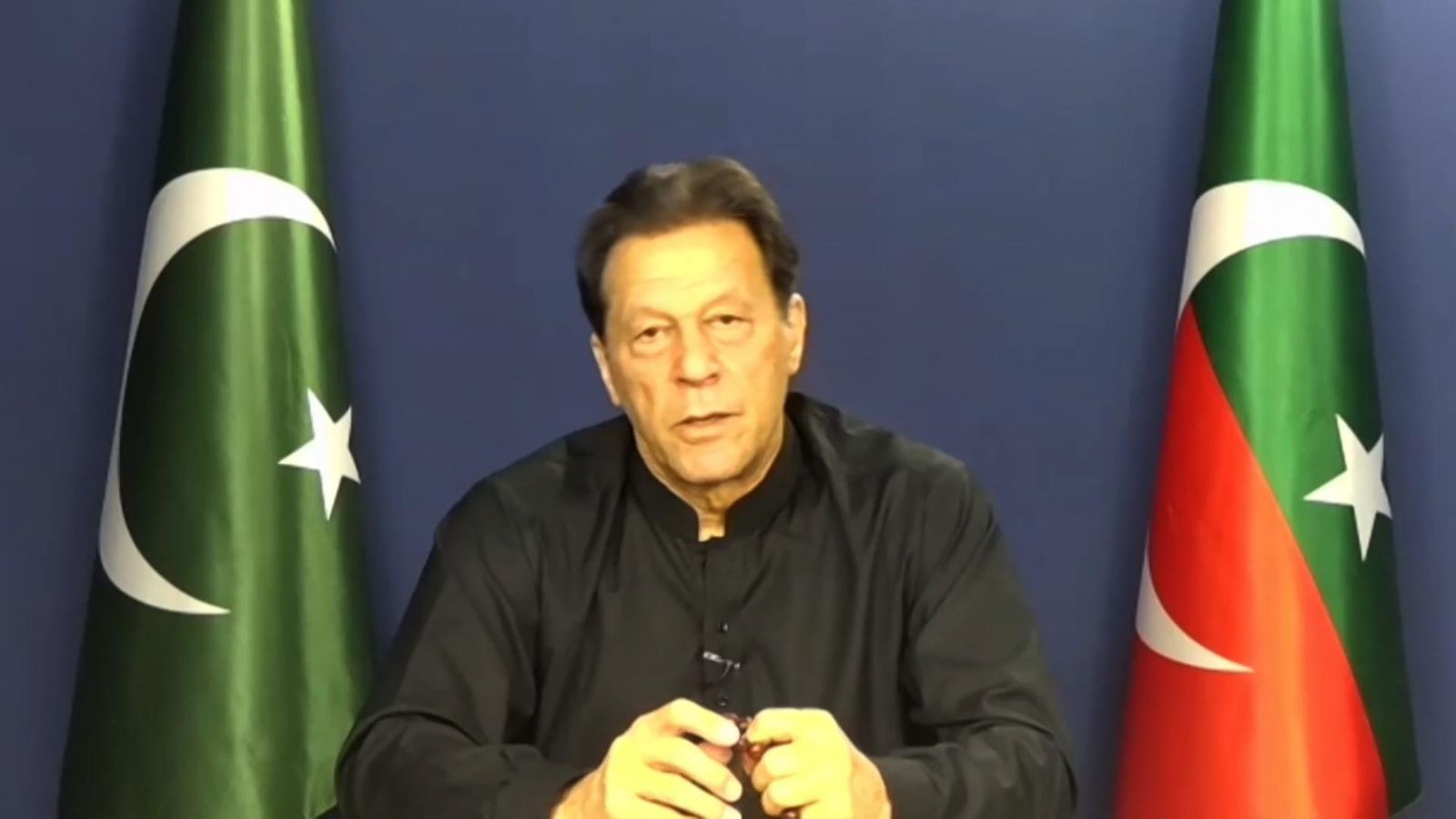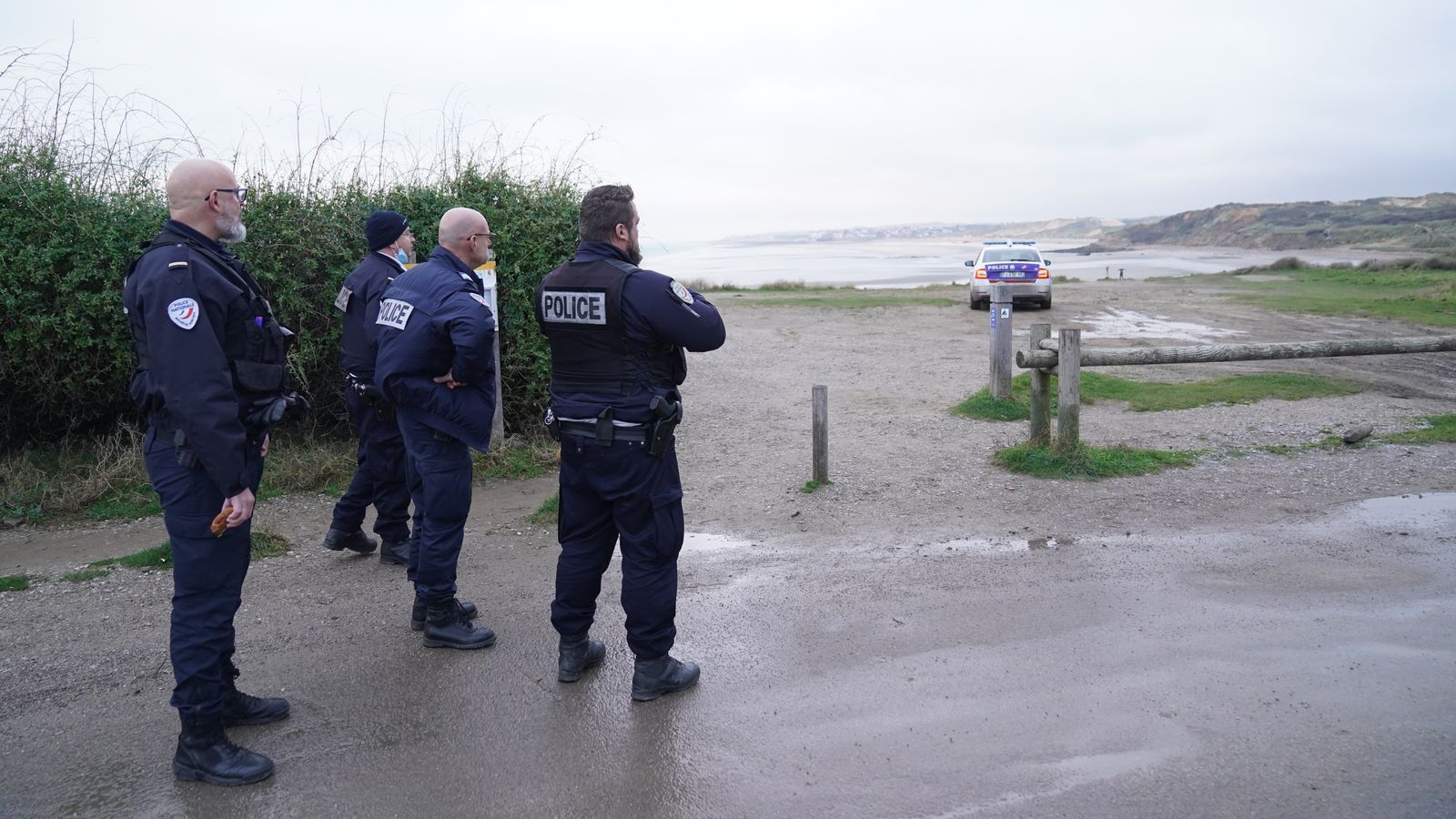Pakistan’s former prime minister Imran Khan said his party had faced unprecedented “victimisation” and accused the country’s government of “dismantling democracy” in an an interview before his latest arrest.
The popular opposition leader, 70, was arrested after he was found guilty of illegally selling state gifts and sentenced to three years in prison on Saturday.
Speaking to Sky News Asia correspondent Cordelia Lynch in July, the ex-cricketer said he had already arranged for a group of 10 to 15 people to make decisions “by consensus” in anticipation of his incarceration.
Deadly protests saw his followers attack government and military property across the country in May following his arrest and three-day detention on corruption charges.
But the former cricketer claimed the violence was a “false flag operation” used as the pretext to “dismantle” his political party Pakistan Tehreek-e-Insaf (PTI).
Read More:
Who is Imran Khan? From playboy to prime minister
Former Pakistan PM says democracy at all time low
“This unprecedented crackdown could not have been taking place unless they planned it before,” he said.
“I compared this to what happened in Germany in 1933 when Hitler used the burning of the German parliament and wiped out the communist opposition.”
Khan said “no political party has ever faced this sort of victimisation” and claimed the “establishment” had decided that “whatever happens” he cannot come back into power.
“In that way they are dismantling the democracy of this country,” he said.
Khan added that the “only way forward is free and fair elections”, saying: “The vote bank is there and therefore whenever there are elections, whether I’m in jail or not, the party will sweep the elections.”
Since his latest arrest, the politician has called on supporters to demonstrate against his sentence.
Be the first to get Breaking News
Install the Sky News app for free
Police were seen surrounding his home in the eastern city of Lahore on Saturday after the verdict was handed down.
In a video message, he urged people to peacefully protest until they get their rights, namely a government of their choice through voting and “not the one like today’s occupying power.”






